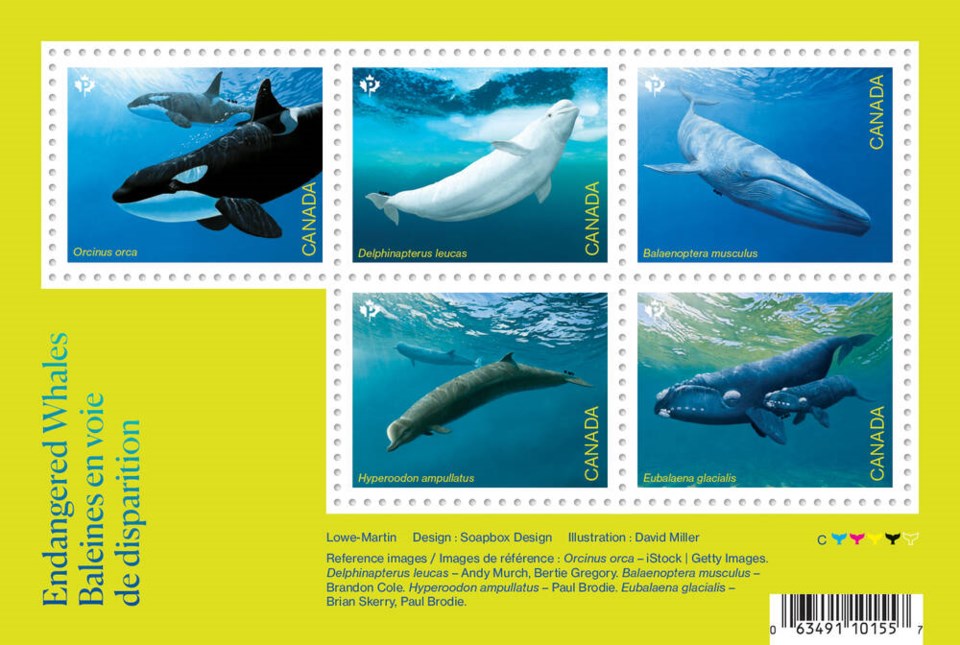Canada Post has unveiled five new postage stamps to raise awareness of Canada’s most endangered whales — including the southern resident orcas and blue whales that live in the Pacific Ocean off British Columbia.
Also immortalized on the stamps — available on Friday across Canada — are the beluga whale in the St. Lawrence Estuary, Cumberland Sound and Ungava Bay; North Atlantic right whale on the East Coast and St. Lawrence Seaway; and Northern bottlenose whale on the Scotian Shelf.
The stamps can be pre-ordered at canadapost.ca.
Canada has more than 30 whale species around its 200,000 kilometres of coastline. Endangered whale populations face threats including ship strikes, entanglement in fishing gear and debris, pollution, climate change and ocean noise.
Morgan Guerin, senior environmental planner and marine enforcement co-oordinator for the Musqueam First Nation, told students at the Beaty Biodiversity Museum at the University of B.C. on Monday that whales are an integral part of the ocean ecosystem and when even the smallest creatures of the food chain are put at risk — by changes to climate or pollution or human disturbance — even great species like whales are at risk.
He urged students to take up the cause of fighting climate change and doing their part of clean up the oceans and preserve salmon stocks. “If Mother Earth is the ocean, and her hairs are the rivers, Mother Earth is going bald,” he said.
Dr. Hal Whitehead, a biologist and professor at Dalhousie University and co-chair of the COSEWIC Marine Mammals Specialist Subcommittee who attended the stamp announcement virtually, said it’s essential to have these whales recognized as endangered because it can lead to legal protection.
“It can also lead organizations and people to act voluntarily to stop activities that harm the whales,” Whitehead says. “It raises awareness that we have a problem here, and we need to do something about it.”
Scientists say ocean contaminants can be stored in the blubber of whales and cause serious harms such as disease and starvation.
Southern resident orcas, whose numbers have dwindled to 75 in the Salish Sea, are particularly at risk, said Dr. Thomas Doniol-Valcroze, head of Cetacean Research for Fisheries and Oceans Canada in Nanaimo, who was at the stamp announcement.
Southern resident orcas only eat salmon, but salmon populations are thin, so noises and other disturbances from boats can disrupt their food search and cause them to go hungry and draw from fat stores in their blubber, said Doniol-Valcroze.
The stamps were illustrated by artist David Miller. Printed by Lowe-Martin, the stamp issue includes a booklet of 10 domestic-rate stamps, an official First Day Cover, a souvenir sheet of five stamps, an uncut press sheet of 25 stamps and a framed uncut press sheet.



